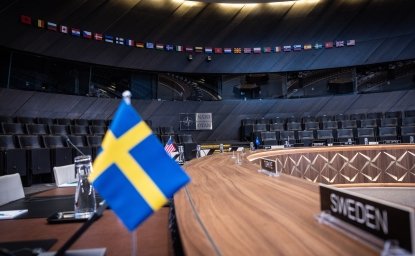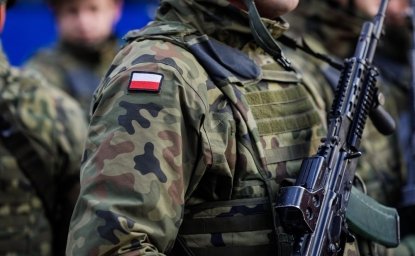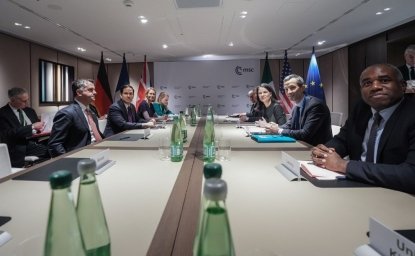WASHINGTON — Whenever I tell Americans that I’ve just moved here from Russia, I get a barrage of questions: “How do you folks survive?” “Why is Putin doing this?” “Why haven’t you stopped him?”
Then there are the dubious historical parallels (Vladimir Putin’s Russia is like Hitler’s Germany in the 1930s); and sometimes more thoughtful ones (Russia is like Mexico at the turn of the 19th century, when the dictatorship of Porfirio Diaz brought stability and economic growth to a chaotic land). Whatever the case, the emotions — ranging from disbelief to anger — are always strong.
The strange thing is that these reactions are somehow familiar to me: I felt much the same way years ago as I watched my nation’s Parliament degenerate into sycophancy as honest media reporting gave way to propaganda. I saw regional elections banned for reasons that seemed completely unrelated to the electoral process. I saw a multibillion-dollar energy corporation, Yukos, assaulted by the state, its market value destroyed, its leadership exiled or imprisoned, and its assets sold to the state-owned oil giant, Rosneft.
Some Russians rubbed their hands in glee as Mikhail Khodorkovsky, himself no angel, went to jail. Others admitted that the state overreacted but said that the oil tycoon might have provoked Mr. Putin. Still others warned that unless industrial leaders stood up to the Kremlin, more businesses would be expropriated.
The various international reactions to what Moscow is doing in Ukraine are similar to the way many Russians felt 10 years ago. Some hard-right leaders and politicians — take the Hungarian prime minister, Viktor Orban, as an example — are expressing approval. Some analysts say that the West, through NATO’s relentless eastward expansion, has provoked Mr. Putin. Still others warn that if the international community swallows its pride more countries might become targets.
What we in Russia have been seeing domestically for almost 15 years is now unfolding on the world stage. Times, places and subjects have changed, but Mr. Putin’s tried and true methods have not. The tactics from his playbook are as follows:
• Real objectives are never clear. Attempts to glean future policies from his speeches are generally useless. Public speaking is just another weapon in his arsenal. He says he won’t bankrupt Yukos, then does just that. He says he won’t take Crimea, and then takes it.
• The way policy objectives are undertaken often resembles (and sometimes involves) special-forces operations. No one divulges the real objective. Most of Mr. Putin’s goals have been achieved by surprise, like the Crimea operation itself. The release of Mr. Khodorkovsky after 10 years of imprisonment came out of nowhere. There are competing theories about why he was freed — perhaps it was just a public relations gesture before the Sochi Olympics.
• The lawyer in Mr. Putin likes to invoke the phrase Po zakonu, “in accordance with the law.” Oftentimes, though, this nod to legality is also a ruse. In early March, for example, he asked and received from the upper chamber of Parliament the right to use military force in Ukraine. In late June, he asked Parliament to revoke it. These moves (both unexpected) were apparently made to put more pressure on Kiev, and to make the point that a law-abiding Kremlin could have used force in Ukraine but refrained from doing so. In any case, Moscow has never admitted that any of the Russian soldiers who turned up in Ukraine, including those killed in battle, have been part of the official chain of command.
• Whatever Mr. Putin is doing, his ultimate justification is that he is acting on the voice of the people. He considers the illusion of majority support essential, but in his case it is not entirely manufactured. Mr. Putin remains popular, though the real extent of his support is unknowable because it is artificially inflated with militant patriotism from a Kremlin-controlled media.
• Mr. Putin has strong distrust of courts, political parties, public and private organizations and other autonomous institutions. The Kremlin has always worked to undermine them. He has also played different parts of society against one another to prevent the formation of popular coalitions. He does the same thing on the international level, exploiting differences between the United States, the European Union, and between individual countries to prevent concerted action on sanctions. He has used Russia’s powerful natural gas trade with this goal in mind, insisting that Moscow undertake only long-term bilateral agreements with individual governments.
• Although he is not an ideologue, Mr. Putin uses different ideologies as it suits him, without regard for evident inconsistencies. His Eurasian integration agenda, for example, contradicts his oft-proclaimed intent to protect and promote the rights of Russians “outside the Motherland.”
•Russia has its own version of “too big to fail.” During the 2008 financial crisis, Moscow helped the owners of big enterprises avoid bankruptcy. Today, Mr. Putin has been acting as if Bashar al-Assad or Viktor F. Yanukovych were controlling shareholders of companies he doesn’t want to lose, even at the cost of keeping inefficient but loyal managers.
• Hard-boiled political engineering and wily public relations have been considered primary domestic policy tools for years. Increasingly, Russia is employing these techniques in the West. It is working with opinion leaders worldwide, increasing the number of languages on its international broadcasts, and is using its new-media arsenal to spread its influence online.
So what is Mr. Putin up to, my American friends and colleagues keep asking. He is, quite simply, bent on preserving and expanding his personal and Russia’s international power. Some of his methods were inherited from the Soviets, some were developed in the absence of domestic political traditions, and some were borrowed from the West. There is no consistent ideology. Nor is there is anything particularly Russian about his beliefs. But the methodology in his playbook is constant and ruthless. It involves techniques that function when all past checks on power — institutional constraints and traditional values — are gone. If it’s true that much of the world is moving in this same ruthless direction, then, yes, Mr. Putin’s methods are indeed political guidelines for the future.
The opinions expressed here are solely those of the author.
This article was originally published in The New York Times' Opinion Pages.





